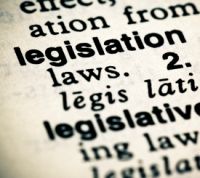

The six pack - a group of Regulations dating from January 1992 - are the Workplace (Health, Safety, Welfare) Regulations SI 1992/3004 Management of Health and Safety at Work Regulations SI 1999/3242, the Health and Safety (Display Screen Equipment) Regulations SI 1992/2792, the Provision and Use of Work Equipment Regulations SI 1998/2306, the Manual Handling Operations Regulations SI 1992/2793 and the Personal Protective Equipment at Work Regulations SI 1992/2966.
Gerard Forlin QC, of Cornerstone Barristers, predicted that a post-Brexit Government would need to review the Regulations, updating, modifying or even strengthening them, as the underpinning EU principles would no longer apply. He added: "If you look at the Provision and Use of Work Equipment Regulations SI 1998/2306, for example, they say that you have to have CE marking on equipment - this is the kind of thing that would have to be reviewed. I'm not saying it would be diminished, but some of the legislation may need to be reviewed and modified if we're not in the EU. The Directives could either be left alone, domesticated into English law, or modified."
He also told that there could be health and safety implications if EU-derived employment legislation was reviewed. This is because some employment laws are considered to be a burden on businesses. These include the Working Time Regulations SI 1998/1833 and Directive 2008/104/EC (Agency Workers Directive). Gerard Forlin said: "I think the issues arise on areas that don't sit directly with health and safety, such as employment protection. There are health and safety issues here - tired workers are also dangerous workers."
The British Safety Council also lent support to the idea that there could be a review of the EU-derived legislative framework for health and safety. Louise Ward, director of policy and standards, said that the UK's legislative framework has it's origins in European Directives, even if they were later incorporated into UK law. She added: "Now that the UK has voted to leave the EU, and depending on the terms of any future agreements, there may be a need to review the framework. Caution is required here if we are to continue to maintain our current standards and protect the health and safety of workers in the UK. The objective must be to judge each element of the framework on its own merits effectiveness not just on its origin."
However, partner in the regulatory services department at Weightmans, Crispin Kenyon, pointed out that EU-derived legislation had survived two previous Government-backed reviews, by Professor Ragnar Loftstedt and Richard Matthews QC, as well as the ongoing "Red Tape Challenge." "I don't see why there should be a different attitude after Brexit" he added. "The Regulations seem to work - statistically, we have a better safety record than all the other countries across Europe. Why would we want to change everything?"
Richard Jones, head of policy and public affairs at IOSH, also said that the current regime was broadly agreed to work. "The fact is the UK's health and safety regime has already been extensively reviewed and found fit for purpose. As we all know, lots of simplification and tidying of the statute book has already taken place - there isn't scope for much more."
For more information in Northern Ireland, see the: